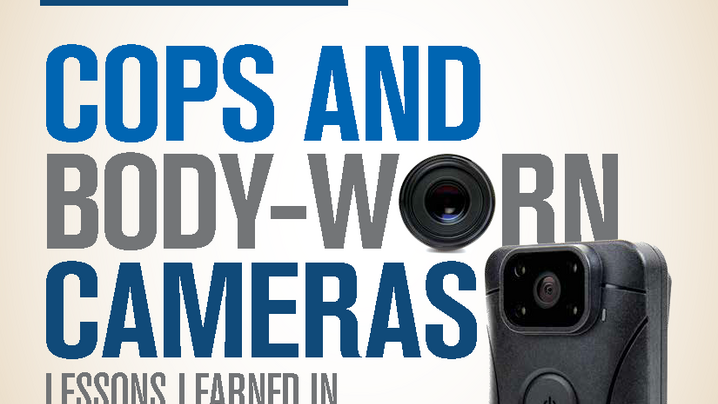
This month’s issue of PM does a great job of hitting a wide range of topics that members have identified as important and relevant. Here’s the rundown:
- Body-worn police cameras seem to be in the headlines daily, and with their use producing significant change within local government police departments. Authors Research Scientist Vivian Elliott and Assistant Police Chief Mike Kurtenbach have tailored their “Cops and Body-Worn Cameras” article in the November PM to the policy and practical implications of cameras, including a focus on the collaboration between local government agencies and law enforcement. If managers are wondering if this type of equipment is right for their communities, they will be interested to know what Phoenix, Arizona, learned after using them. Yes, there can be issues, but cameras were found to have tremendous value, especially from an investigative standpoint. Reports also show that complaints against officers dropped 21 percent when compared to areas that did not have cameras (10 percent increase). Phoenix plans to expand camera use.
- “Local governments can help their employees reach their retirement goals by giving them the information, tools, and incentives so they can save what they will need,” writes Center for State and Local Government Excellence President/CEO Elizabeth Kellar in her article on retirement benefit plans. She notes that communities “have taken steps to shore up, to contain costs, or to make changes in the design of their pension plans, reducing costs and employer risks.” Plus Kellar addresses the question: What can local governments do to make it easier for newer hires to save?
- Town Administrator Shaun Mulholland, Allenstown, New Hampshire (4,300 population), found that an economical and efficient solution for administrative processes was to go paperless. Technology, including a virtual cloud, has helped Allenstown departments work collaboratively, and now some 62 percent of Allenstown’s payments are sent electronically and process time has been reduced from weeks to days. Find out what the staff learned from this strategic effort.
- Fire Marshal and Emergency Manager Matthew Marietta, Milton, Georgia, warns that the public needs to pay attention to the impact of not only major catastrophes but also fire and smaller-scale emergency events. He urges risk reduction and mapping out future local government public safety roles before an emergency occurs.
- ICMA Senior Adviser Steve Bryant, Albany, Oregon, using his 40-plus years of management experience, shares five habits he believes managers can use to keep council-manager relationships untangled.
- ICMA Members and managers Rebecca Fleury, Joseph Mosley, Roy Hardy, and Heather Brooks were willing to tackle the On Point department question: How Is Your Community Achieving Social and Cultural Vitality? Their answers show definite results for each community.
- Assistant City Manager Milton Dohoney, Jr., Phoenix, Arizona, in a Management Minute department, describes how a comprehensive organizational review evaluation process has unleashed creativity and innovation in the city of Phoenix.
There’s always so much more content I’d like to gush about but don’t mention as I know readers’ time here is tight; however, one article that might draw in readers the most is on the status of local and state government employment and how it changed during the past year, including good news: an increase in local government employment.
From body cameras to electronic signatures to effective governing bodies, I hope this issue’s articles can help managers lead efficient local governments that improve public support and confidence.
New, Reduced Membership Dues
A new, reduced dues rate is available for CAOs/ACAOs, along with additional discounts for those in smaller communities, has been implemented. Learn more and be sure to join or renew today!
